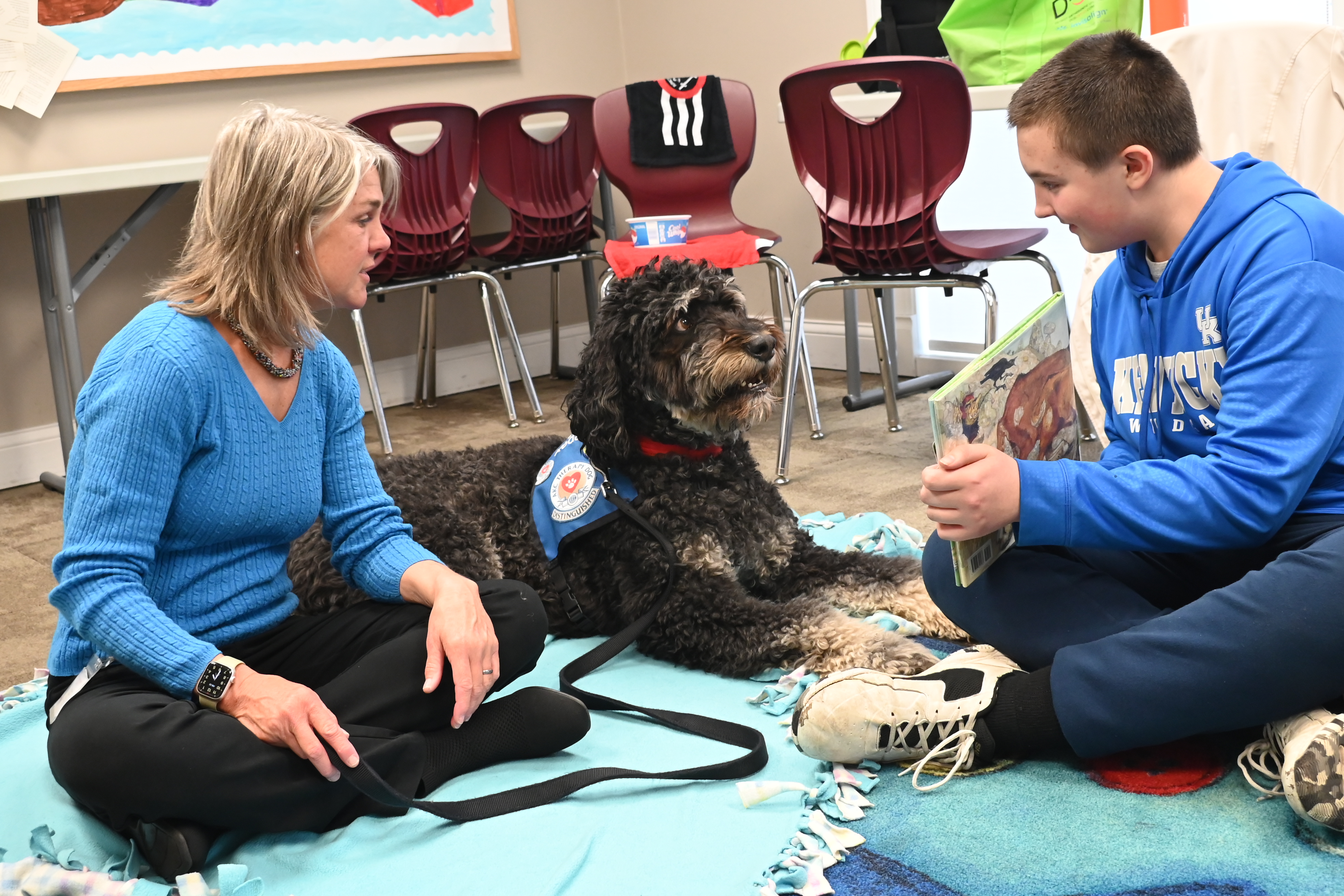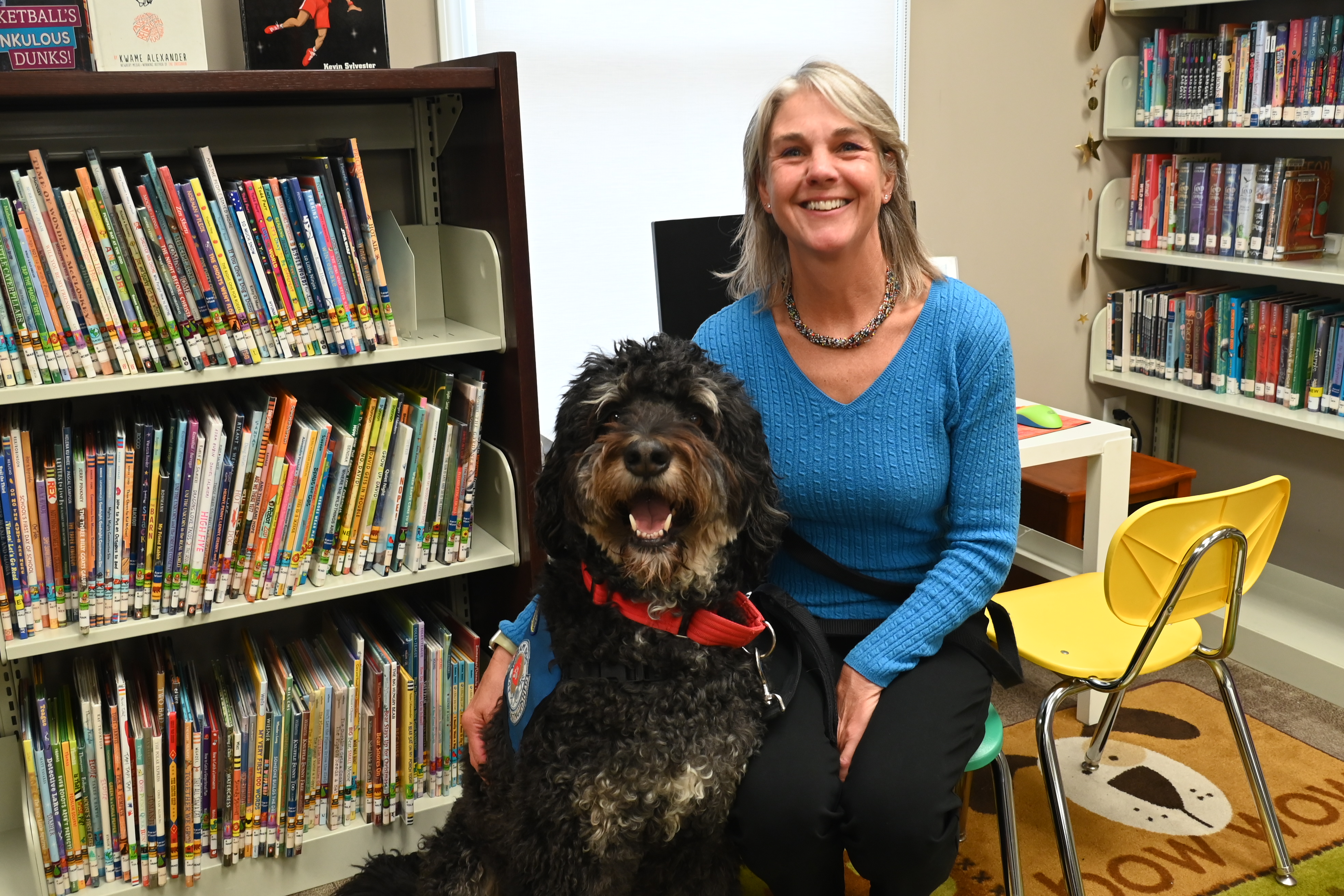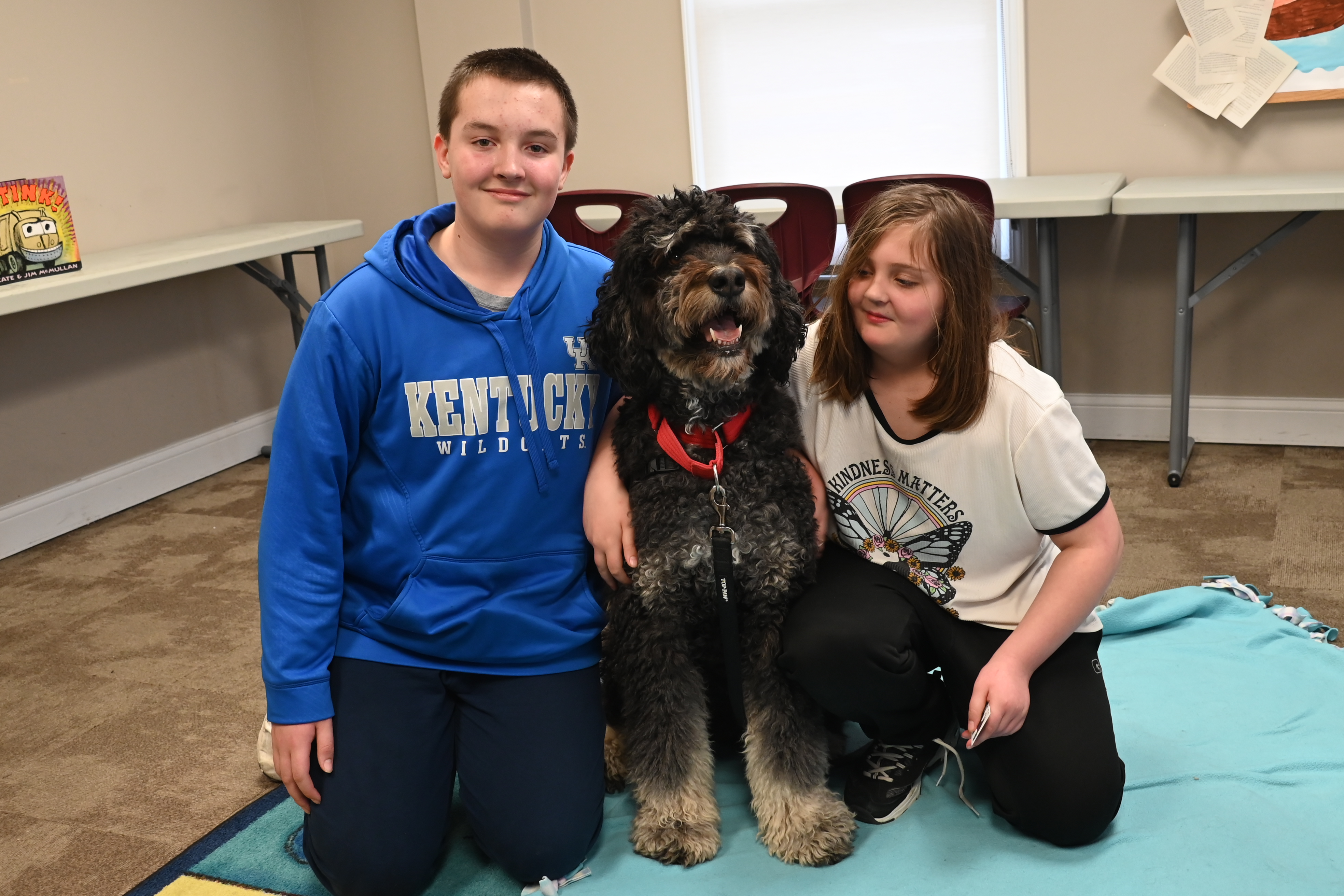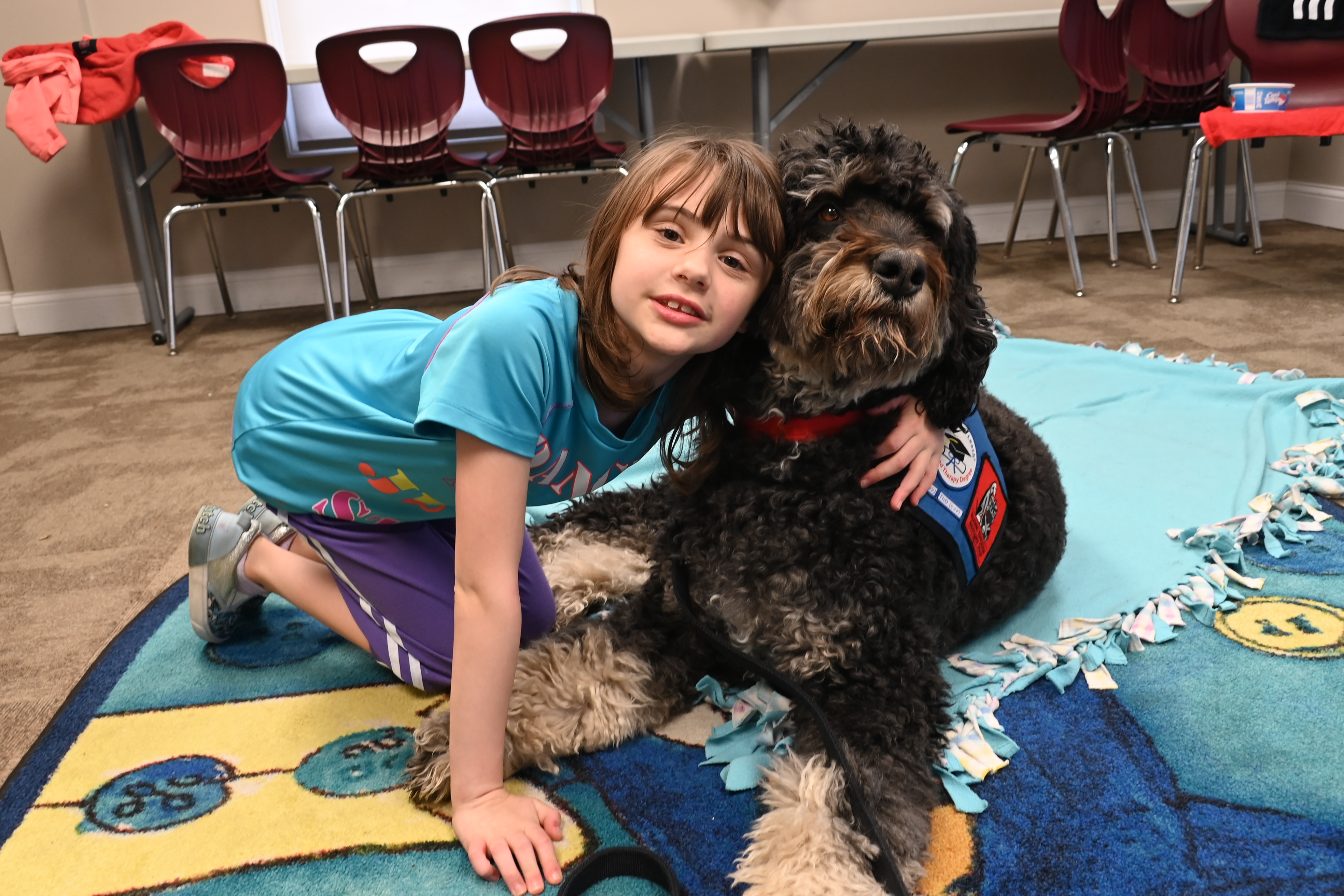Meet a Therapy Dog at Puppy Tales

If you’ve ever attended one of the library’s Puppy Tales programs, there’s a good chance you’ve met Koda, an AKC-accredited therapy bernedoodle who loves story time.
What exactly is a therapy pet? Love on a Leash defines a therapy animal as a “pet that is trained with its owner as a team to provide comfort and stress relief to others in a variety of situations.”
Therapy pets differ from both service and emotional support animals. Service animals “are individually trained to perform specific tasks for a person with a disability,” according to Love on Leash. ESAs, however, “are prescribed by a licensed mental health professional to a person with a disabling mental illness.”
Koda’s handler, Amy Sloan, says her journey with therapy pets began with her first dog, who came into her family’s life soon after they moved to Tennessee in 2011. They lived in a house near a lake; it was spring, and Sloan was preparing for their first big family-and-friends gathering. Her husband went down to ready a boat and returned with a surprise: a black fluffball. After no one claimed him as their own, they grew attached. (Sloan and her family now live in Greater Cincinnati.)
“I told my husband, ‘If you let us keep him, I promise I will make him a therapy pet and give back to the community,'” recalls Sloan. “He found me for a reason and I didn’t go pick him out of the pound. It was something meant to be.”
After about six years, Sloan’s first dog died from an injury. Sloan went through a grieving process, and her oldest daughter knew something was missing. That led to Koda coming to live with them in 2019.
Becoming a certified therapy pet is a year-and-a-half long process of obedience training. Though she wanted Koda to be a therapy dog from the start, Sloan says it’s really not up to her as the owner.
“They have to have the right temperament,” says Sloan. “They have to be able to want to go to classes, learn the obedience and be a people dog.”
Koda, as history goes, took to the training swimmingly. Afterward, Sloan and Koda began visiting places like schools, nursing homes, community events and more—including Campbell County Public Library!
Both the Carrico/Fort Thomas Branch and the Alexandria Branch host semi-regular Puppy Tales programs, where patrons can read a story or two to a specially-trained therapy dog. Sessions are 15 minutes. You may even get to see Koda do a few tricks! Fort Thomas features another pooch, Jasmine, along with her handler Jenney Tenney.
At the time of publication, the next Puppy Tales is from 2-4 pm on Saturday, June 8 at the Fort Thomas Branch. Register and staff will contact you to schedule a specific time.
According to Fort Thomas’ Children’s Services Programmer Joyce Emery, Puppy Tales’ origins go back to the Newport Branch, but she revived the program in 2008 when she was looking to provide supportive programming during the financial crisis.
“Right from the start, I could see how beneficial the Puppy Tales program could be. First, Puppy Tales provides a safe, supportive and non-judgmental space where children get to read out loud to a dog,” says Emery. “The therapy dogs in Puppy Tale programs love children and they get very happy every time a new child enters the room. They are specially trained to behave well even when little children may get overly exuberant and pull a tail, or poke an ear.”
Emery says the program offers more than the opportunity to read; some children, for example, are afraid of dogs and visit over the course of several months to help ease that fear. Some come to see how their children respond to dogs and teach their kids how to interact with them before getting their own pet pooch. And others come for the sheer joy of hanging out with a furry friend.
“I don’t get paid monetarily,” says Sloan, a former special education teacher. “I get paid in the smiles. This morning, we went to an elementary school we’d never been to before. It was a surprise; the kids didn’t know we were coming… They squealed and were so excited.”
The benefits of therapy depend on the population; for kids, it can be a special treat or a way to unwind from stressors. When the duo visits memory care units, Sloan says that the older adults often reminisce on happy times with past pets.
“If I get to give that stranger 10 minutes of happiness, that’s all that matters,” says Sloan.
More News
Follow Us!





